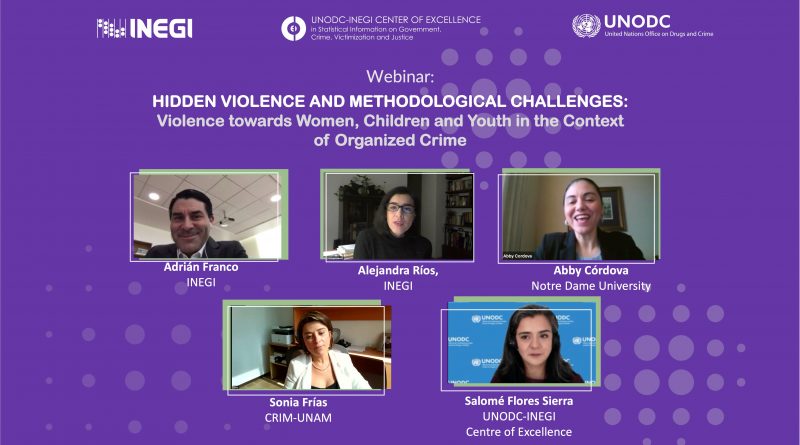Hidden violence. What must it take to make them visible?
As part of the “16 Days of Activism against Gender-Based Violence” the webinar “Hidden Violence and Methodological Challenges: Violence towards Women, Children and Youth in the Context of Organized Crime” co-organized by the Centre of Excellence (CoE) and the INEGI took place last November 28.
The session began with the intervention of the Vice-President of the National Institute of Statistics and Geography (INEGI) Adrián Franco, who mentioned the methodological and ethical challenges that data producers face at the moment of collecting information on sensitive issues like these violences.
The discussion was led by Alejandra Rios, Deputy Director-General for Development, Analysis, and Government Indicators at INEGI, and included the participation of the panelists Sonia Frias of the Regional Centre for Multidisciplinary Research (CRIM) of the National Autonomous University of Mexico and Abby Córdova adjunct professor at the Notre Dame University. The dialogue between experts spread between the importance of developing differentiated information related to violence against women, children, and youth in an organized crime context; the current sources of information on the topic and their limitations; and the methodological and operational challenges that need attention in the short to medium term to produce better measures.
The webinar explored the possibility of incorporating questions into specialized surveys such as violence against women and victimization, however, they also stressed the difficulty of adjusting instruments that are already expanded. The discussion also addressed the different methodological, operational, ethical, and even budgetary challenges that must be overcome to gather information on the impact of violence on these populations.
To conclude Salomé Flores-Sierra coordinator of the UNODC-INEGI Centre of Excellence remarked on the value of data to make visible the invisible, underlined the importance of strengthening administrative registries and specialized surveys, reiterating the CoE’s commitment to contribute to the development of reference standards for obtaining quality data to improve measurement.



